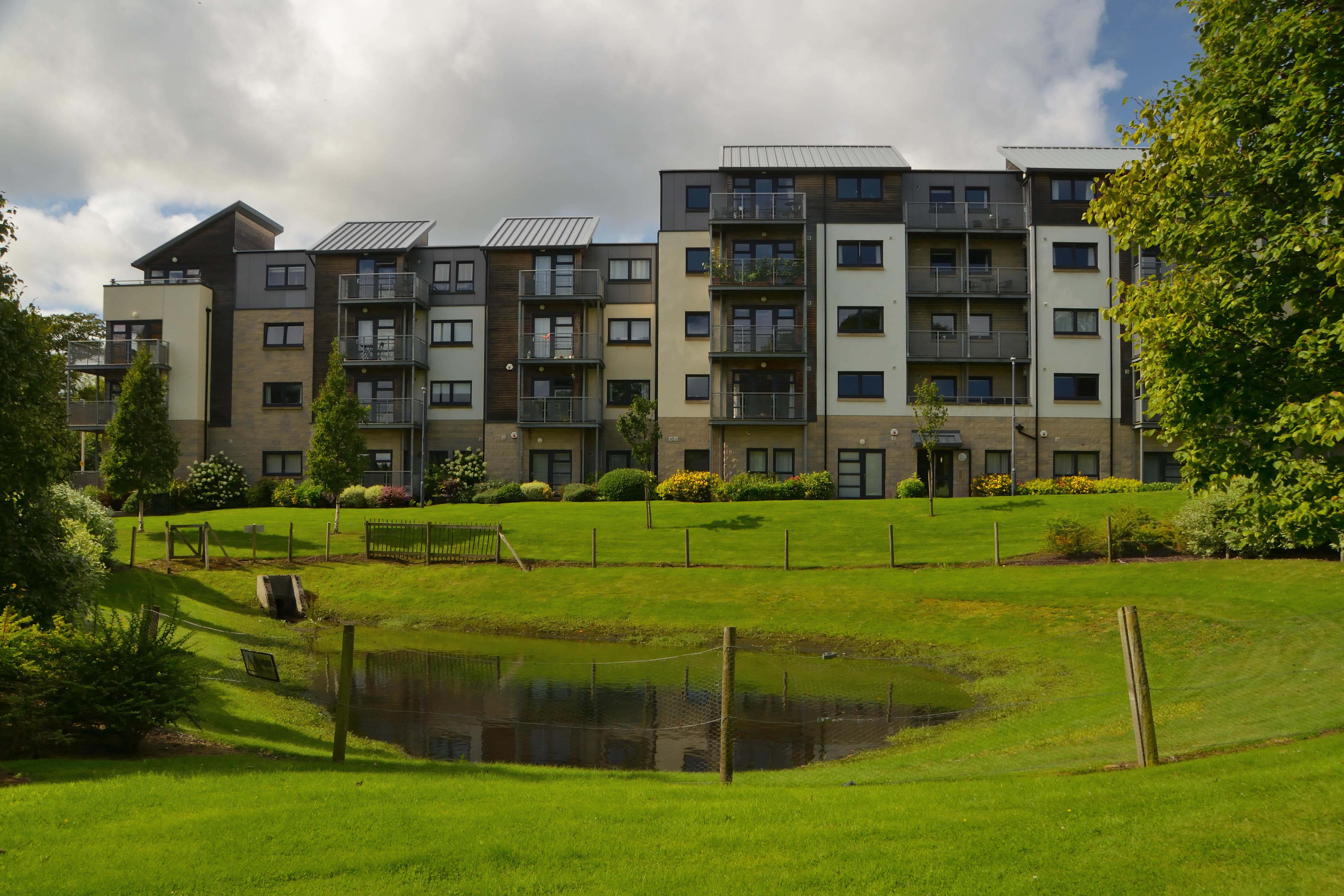Sustainable drainage to be mandatory for new developments in England from 2024
Developers will have to put in measures such as permeable paving, wetlands and grassed areas to reduce flood and pollution risks.

New developments will have to include “sustainable drainage” such as grassed areas, permeable surfaces and wetlands to curb flooding and pollution, the Government has said.
The Environment Department (Defra) said mandatory requirements for new developments in England to incorporate sustainable drainage systems would reduce the risk of surface water flooding and relieve pressure on traditional sewerage systems which can get overwhelmed by heavy rain.
A public consultation later this year will help shape new regulations for England, which are expected to be implemented in 2024, officials said.
New developments can increase the risk of flooding and sewers being overwhelmed by heavy rain, because they cover previously permeable surfaces such as grassland and soil that would have helped water soak away.
Our traditional drainage systems are under increasing pressure from the effects of climate change, urbanisation and a growing population
That can lead to untreated sewage being released into rivers and the sea through storm overflows designed to stop sewers backing up when lots of rainwater pours into road and building drains that form part of the same system.
But sustainable drainage measures such as “rain gardens” and shallow, plant-filled channels known as swales, green roofs, ponds and wetland areas, as well as water-permeable paving, can reduce run-off, slow the passage of water and help it soak away into the ground.
Some of these features can also create habitats for wildlife, while things such as tanks and water butts can also allow for water to be stored and reused, reducing pressure on supplies.
Environment Minister Rebecca Pow said: “Our traditional drainage systems are under increasing pressure from the effects of climate change, urbanisation and a growing population.
“The benefits of sustainable drainage systems are many – from mitigating flood risk by catching and storing surplus water and reducing storm overflow discharges, to enhancing local nature in the heart of our developments and helping with harvesting valuable rain water.
Our drains and sewers are spilling under significant pressure, exacerbated by new housing developments having the automatic right to connect to the sewerage system
“Taking a more consistent and effective approach to sustainable drainage systems will improve the resilience of our drainage and sewer infrastructure, while reaping these broader benefits.”
The plans will include exemptions for smaller developments which will be drawn up as part of the consultation period.
Environmental Audit Committee chairman Philip Dunne said: “Our drains and sewers are spilling under significant pressure, exacerbated by new housing developments having the automatic right to connect to the sewerage system.
“It is absolutely right that the Government leaves no stone unturned to address the major and complex challenge of easing pressure on the system.”
He said the intent for new developments to include sustainable drainage systems was “absolutely the right direction” and had been a key recommendation in the EAC’s report that looked at water quality.
“Developers must not simply have the right to connect to an overloaded sewerage system and not contribute to improvements,” he said.
Bookmark popover
Removed from bookmarks